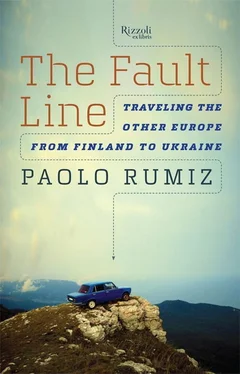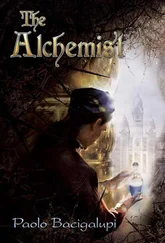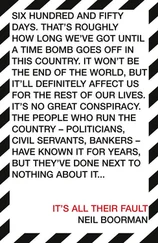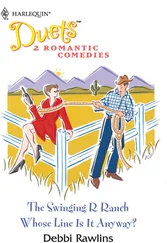“Go to that frontier,” I was told years ago by Enzo Bianchi, prior of the Bose community in Piedmont. He added with his ardent eyes: Those lands are a volcano of wars, vitality, and faith . I was leaving with Monika on a journey to the Holy Land, and there, too, looking at a map covered with notes, helpful hands rushed to indicate the fortresses of the faith, and their recommendations exhorted me to go beyond Jerusalem, toward Saint Catherine’s monastery in the Sinai and onward along the Nile, to the Wadi el Natrun monasteries, where they grow grapes and olives. Monika made the rest of that journey on her own to the land of the Copts, to the desert monasteries, all the way to the high plateaus of Ethiopia, to Lake Tana and to the African Jerusalem called Lalibela. Now that journey of hers back then and this one to the borders of the European Union have been fatally joined.
I realize that the map of this vertical journey should be twelve feet long, go all the way down to the heart of Africa. I fold it back up, and meanwhile at the stern, a small mirage has come into view. The desert and the northern sea have a lot in common, and now the most distant islands, toward the east, rise up on the horizon as though it were an air cushion, and if it weren’t for the serrated rim of the fir trees, they would be dunes in the Sahara in the incandescent hours.
Beyond the white wake of the launch cutting a swath through the cobalt surface of the water, the last strip of water has taken on the color of the sky, giving the illusion of a horizon lower than the islands. I’m traveling in a world of visions, where God doesn’t let himself be caged in by catechisms, but remains unsayable, incommensurable, undefinable behind the incense that envelops the holy icons and the regal doors of the altars.
Now the last light of day has lit up the tree trunks on the nearest islands, which are suddenly inflamed, taking on the same rum tint of a Spanish doubloon minted in Martinique. That’s when I let go of all of my doubts, grab hold of my cherrywood cane, and throw it as far as I can, into the waves. It spins through the air, plunges into the water, sinks, and reemerges to be painted red—it, too—by the fiery sunset.

5. KARELIA
ONCE AGAIN A TRAINfor the South, direction Medvezhyegorsk. It’s windy and rainy outside, and it’s delightful to stay under the covers and look out at the Baltic–White Sea Canal that’s running along next to us with negligible changes of level, from lake to lake, river to river, through water meadows, peat bogs, and springs. The double beat of the wheels on the rail joints is slow, heavy, soporific.
The stations have high-sounding names: Byelomorsk, Sosnovets, Krasnaya Gora, Spalovaya. The immense canal was dug by prisoners of war and inmates of the Gulags. In the beginning, the barges were pulled through it by hand from the shore, a drudgery worthy of the era of the pyramids, but the totalitarian nature of this place was not enough to crush its human inhabitants.
In Medvezhyegorsk, I see, for the last time, timetables for the Murmansk line.
All the trains go up there or come down from there. Twenty trains a day, some days even more. The woodstove in the waiting room is crackling. Outside, the rain is coming down in waves, and I can feel that I’m coming out of the vertical dimension to initiate a long, wearying zigzag. Then there’s the assault on the bus for Velikaya Guba, our next destination, on Lake Onega, where Monika is hoping to meet a Polish writer who is said to interpret even better than the Russians the soul of these places. A person who lives in an izba on the lakeshore. We would have been overwhelmed by the crowd if the bus driver, realizing that we were unschooled foreigners, hadn’t intervened on his own initiative to get us a place.
As we’re pulling out into the rain, I realize that we are not on a bus but in some sort of submarine. A heated cabin for fifty people, sealed shut by dark glass windows, beaded with water vapor, whose visibility has been made even worse by pleated green curtains, swinging back and forth in a vaguely hypnotic rhythm.
And then villages whose names are all the same, labyrinths of birch trees, sleep-inducing ups and downs with women coming and going in the rain. The route is a slalom between forests and lakes, all pointing southeast, which if you look at them on the map, says Monika, look like “a newspaper where an ink pot was overturned.”
It seems that we’ve arrived at land’s end, but no, the serrated coast of the Onega deceives us by elongating even farther, stretching out into infinite archipelagos, lakes, fjords, and promontories, all desperately alike. We read the names of the various towns with care. The road signs point to Uzkiye Salmy, Myagrozero, Velikaya Niva, but of Velikaya Guba not even a hint. Plus, the signs give you no sense at all that you’re nearing some kind of urban center. In this immense sylvan landscape, all they do is separate one forest from another.
Struggling to keep our eyes open, we look attentively at every sign of humanity: a sawmill, a bridge, a police station. Then the migrant within me realizes that we are no longer heading southeast, that is, in the direction of the “ink spill,” but we have turned east. So I ask a fellow passenger where the devil is this blessed Velikaya Guba.
“But that stop was four miles ago!” the woman shouts, as though the responsibility for the error were hers. Inside the bus rolling on through the woods, there is a flash of dismay, which immediately turns into a wave of fraternal alarm for the two lost foreigners. From the back of the bus, the Russian woman makes her way up to the bus driver—“Alexei, stop! Now!”—and he slams on the brakes in the middle of the woods, gets out, helps us find our backpacks, explains the way to go, and then takes off again on a slalom between mud-filled potholes. There’s just one thing he didn’t tell us: we’ll have to go the whole way on foot because at that time of night—nine o’clock—there’s not a living soul traveling through the forests of Karelia.
This was a fix we’d gotten ourselves into. What were we thinking of when we decided to take a bus to this godforsaken place, just to look for some writer by the name of Wilk, that is, Wolf, surely a misanthrope, somebody who’s come all the way here just to escape from Poland? Monika, who has read two of his books, made me curious by telling me that he sleeps on his woodstove like the Russians of yesteryear, that he doesn’t have a telephone. He lives on fish, the potatoes and onions from his garden, and boiled water from the lake. But now that we are here, alone in the subarctic night, exhausted in the middle of the forest, dragging our backpacks on wheels, I’m overcome with desperation.
If only this guy lived in Velikaya Guba, which is, after all, the last administrative center on the north coast of Europe’s second biggest lake. No, the oddball has settled down on the farthest outskirts of town, at the end of a maze of little woodland roads. The people on the bus had tried to explain the road to us: “Go on foot until you come to a little wooden church dedicated to Saint Simon, the patron of vagabonds. Ask in town, everybody knows where it is. The Polish guy lives right near there, with his wife, Natasha. You can’t miss it!” But I haven’t got the least bit of confidence. If we got lost on the bus, we’ll surely get lost on foot.
It is at this point that out from the absolute silence of the forest, under a rainy sky, comes the car of Judge Maximov. Walking along with my gimpy gait, I’ve already been swearing for a mile and a half, and it seems too good to be true that this late-traveling automobile, the only car in circulation in the entire district of Onega, is passing right by us as we’re walking on the gravel, dragging our backpacks behind us. Oleg Maximov looks to be around forty, speaks decent English, and immediately bends over backward for us. He clears the backseat of piles of court documents and files and invites us to get in. He can’t believe that a foreigner of my respectable age is hitchhiking in Russia. He says it’s dangerous; there’s no telling what might happen. I reply that in Italy it’s worse. Nobody would ever have picked me up in the woods after dark in such a deserted place.
Читать дальше













